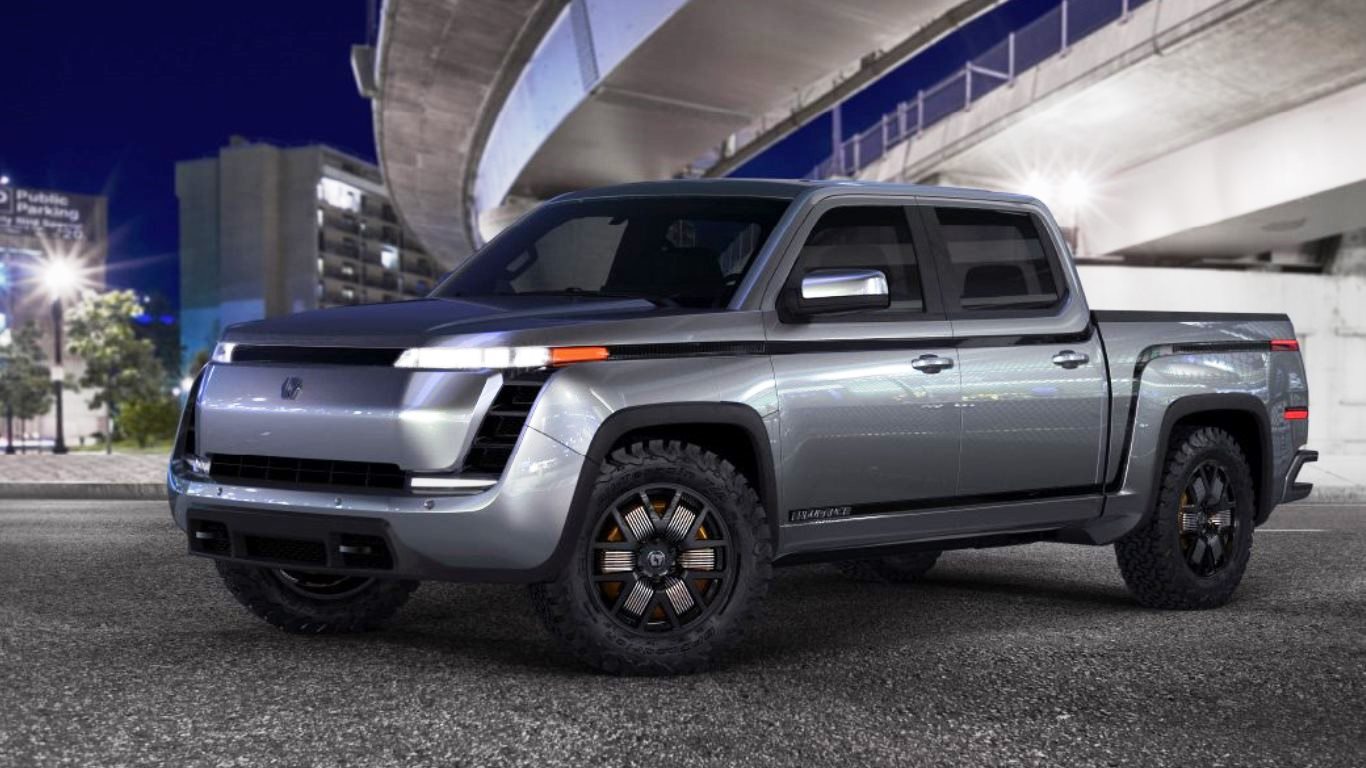Cars and Drivers
Tesla Gets Yet Another Electric Vehicle to Compete With Ahead

Published:

When DiamondPeak Holdings Corp. (NASDAQ: DPHC) came public early last year as a special-purpose acquisition company (SPAC), the company raised $250 million it planned to use to form just about any business combination, with just about any kind of company, but that it intended to focus its search on a business with a real estate component.
It’s possible to argue (barely) that Tuesday’s announcement that DiamondPeak is combining with privately held Lordstown Motors fits that focus. Lordstown Motors acquired General Motors’ Lordstown assembly plant, where the company plans eventually to build some 60,000 all-electric (EV) pickup trucks annually. There’s the promised real estate.
What makes the deal noteworthy, though, is Lordstown’s product. The company’s planned EV, the Lordstown Endurance, is planned to begin production in the second half of next year, a full year earlier than the Cybertruck from Tesla Inc. (NASDAQ: TSLA). Another EV pickup, the R1T from another well-funded startup, Rivian, originally was planned to begin production late this year, but the company has delayed the start until 2021, blaming the COVID-19 outbreak for forcing a break in retooling Rivian’s assembly plant in Illinois.
Other recent initial public offerings (IPOs) for semi-tractor (Class 8) maker Nikola Corp. (NASDAQ: NKLA) and Workhorse Group Inc. (NASDAQ: WKHS), which makes delivery vans, have sent the EV sector soaring.
Last month, another SPAC, Tortoise Acquisition Corp. (NYSE: SHLL) announced a planned reverse merger with Hyliion, a Class 8-electric power-train maker that uses a natural gas generator to recharge its batteries. Nikola also offers an all-electric semi along with an electric-hydrogen hybrid.
In another deal announced earlier this month, Spartan Energy Acquisition Corp. (NYSE: SPAQ) announced its intention to do a reverse merger with Fisker, an EV maker that filed for bankruptcy in 2013 after selling a handful of its Karma sports cars.
That’s a lot of action, and while it would all seem to be aimed at Tesla, the reality is that the losers stand to be GM, Ford and Volkswagen.
Nikola and Hyliion are targeting the heavy-duty Class 8 sector that the Tesla Semi is also aiming at, but with different powertrain systems. The Workhorse van is addressing a sector that Tesla is not competing in, and in the passenger car sector, none of the traditional carmakers comes close to Tesla’s combination of price and range, the two options most important to mainstream vehicle buyers.
That leaves pickups, the gasoline-powered vehicles that perennially lead all vehicles in U.S. sales, making it an obvious target for a new entrant. Lordstown’s Endurance is aimed at commercial fleet buyers and the company announced more than 27,000 pre-orders valued at $1.4 billion.
With so many new competitors and the traditional heavyweights in the wings, is Tesla really under an existential threat? Probably not.
On Tesla’s second-quarter conference call, CEO Elon Musk said that the company’s goal is to be slightly profitable and maximize market share. Right now it owns 80% of the U.S. EV market according to Loup Ventures analyst Gene Munster.
By 2030, Tesla could be producing (and selling) 15 million vehicles a year. Those vehicles will be getting better, and the recharging stations needed to override consumers’ range anxiety will become ubiquitous. GM, Ford and VW may only be able to compete on price and that, Munster believes, is a battle they can’t win.
As for startups like Rivian and Lordstown that are targeting the light-duty truck sector, they may have an easier time of it than traditional carmakers because there is a big market for pickups and sport utility vehicles (Rivian’s other vehicle is the R1S SUV). But can either of these companies compete with the EV market share leader that is also a leading battery maker?
Whether Tesla, Rivian, Lordstown, or another truck maker wins the pickup battle is almost irrelevant to Tesla’s future. As Loup Ventures’ Munster points out, “[T]he long-term value of Tesla will not lie in its initial business; rather, the long-term value will include renewables, batteries, and repurposing those technologies into new markets, potentially HVAC, small aircraft, and others.”
Tesla’s stock rose by about 3.8% on Monday to close at $1,485.00, in a 52-week range of $211.00 to $1,794.99. The price target on the stock is $1,239.11.
After two decades of reviewing financial products I haven’t seen anything like this. Credit card companies are at war, handing out free rewards and benefits to win the best customers.
A good cash back card can be worth thousands of dollars a year in free money, not to mention other perks like travel, insurance, and access to fancy lounges.
Our top pick today pays up to 5% cash back, a $200 bonus on top, and $0 annual fee. Click here to apply before they stop offering rewards this generous.
Flywheel Publishing has partnered with CardRatings for our coverage of credit card products. Flywheel Publishing and CardRatings may receive a commission from card issuers.
Thank you for reading! Have some feedback for us?
Contact the 24/7 Wall St. editorial team.